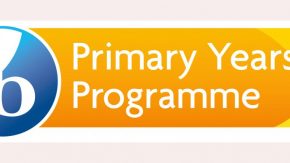Kids & Fake News!
The information explosion due to the internet has provided access to areas of knowledge and expertise that was unthought of when most of us were in primary school. It raises questions around the susceptibility of children being tricked by ‘fake information’ on the internet.
Our reality is that we live in a world where online hoaxes, phishing, online solicitation and fake news are reasonably common. The research in Australia shows that many adults are the victims of online scams and many more of us are susceptible to believe fake news and information.
There was research repeated recently around the susceptibility of young people to online hoaxes. The results are interesting. The Marshall Memo outlined the research from an article in The Reading Teacher. I have inputted this summary below.
In the article the researchers revisited the classic Tree Octopus hoax of 2006. Back then, researchers had no trouble fooling every single one of a group of grade seven students with a bogus website with the heading, “Help Save the Endangered Northwest Tree Octopus from Extinction.” The website had photos, links for further reading, and a magazine cover showing a woman wearing a stylish tree octopus hat, which was supposedly why the creature was endangered. Students simply lacked the critical thinking skills to determine the credibility of the content. What’s more, when they were told the website was a fake, students struggled to find the evidence that this was the case.
The study was repeated in 2018 with grade 1-5 students to see if students’ skills and perceptiveness were any better. “Thinking critically about online information is often referred to as web literacy,” say the researchers. “To be web literate, readers need to become healthy skeptics who develop what we call reliability reasoning, to determine deceptions and truths in an increasingly complex world that grows more and more dependent on online information.” Students looked at the Tree Octopus website and were interviewed individually: How can you tell if this website has accurate (or true) information? Overall, only 35 percent of students saw through the hoax. Here’s the grade-by-grade percent of students who trusted the phony website:
-
- First grade – 80%
- Second grade – 50%
- Third grade – 80%
- Fourth grade – 79%
- Fifth grade – 42%
Although there was progress from the 2006 study, far too many students were inadequately skeptical about online material. The researchers analyzed students’ responses on three dimensions:
-
- Application of prior knowledge about content – Most students who uncovered the fake did so because they used their prior knowledge about octopuses: they live in the ocean, not in trees! “Relying on background knowledge only works if a reader has enough related knowledge to make a critical and informed decision. A major concern is that students trusted the information if it looked real.” This is another argument for a solid curriculum in literature, science, social studies, and the arts.
- Use of text features – Students were mixed in their use of these, with some trusting the website because it had a “real” photo and others suspicious of Twitter references. One fifth grader knew that a URL ending in .net was a red flag.
- Knowledge about “facts” – Most students believed the website because it presented what they believed were facts: “It says where the habitat is.” “It mostly states facts and specific details and has photographs.” Only fifth graders saw the “facts” as a problem, and even there, many were fooled.
In this world of fake news, alternative facts, phishing scams and a web full of conspiracy theories, extremist views and flat earth level wacky websites, there is an enormous need for parents and teachers at Lindfield to keep working on the critical-thinking skills of our boys.
We want our students to be aware, engaged, thoughtful and skeptical readers with detailed knowledge of how to unpack and analyse material, especially on the Internet. We need to encourage our boys to question, think and analyse the world around them.
As parents, sometimes this is the last thing we feel like at the end of a long day but open-ended conversations, where the boys are left to make judgements on situations through discussions with you, will help them hone their skills. For your son, a critical eye is essential in a new world of constant information where there is little oversight and no checks on the reality of the facts on the internet!
“Critical Thinking Is Critical: Octopuses, Online Sources, and Reliability Reasoning” by Jodi Pilgrim, Sheri Vasinda, Christie Bledsoe, and Elda Martinez in The Reading Teacher, July/August 2019 (Vol. 73, #1, pp. 85-93), https://bit.ly/2ZNcKOj





